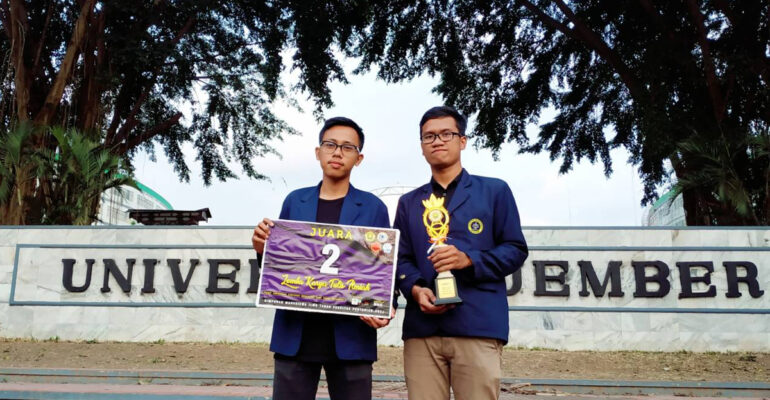AIMS Application to Overcome the Heavy Metal Work of IPB University Students This Wins 2nd Place in the National Competition

One of the food hazards that threaten public health is caused by the heavy metal content of the food. Pollution of heavy metals on agricultural land in addition to damaging the environment is also detrimental to various parties, not only farmers, but also the government and the community. Metal pollution on agricultural land is on average not only due to industrial activity but also due to intensive farming systems (the provision of inorganic fertilizers and pesticides) that have been used by farmers since the era of the green revolution in the New Order era.
This prompted three IPB University students, the Study Program of Land Resource Management, Faculty of Agriculture (Faperta) namely Muhammad Anggi Imaduddin, Agung Nurfaizi, and Afidya Pramesti to initiate an application titled “AIMS” (Agricultural Input Management System).
“This AIMS application can overcome heavy metal pollution in agricultural land especially due to intensive agriculture. This application works by collecting soil analysis data on agricultural land which then compares metal content data with environmental thresholds to detect metal pollution. All data is stored in GIS (digital maps), then the database is made and linked to the AIMS application, “explained Imad as Team Leader.
Agung also explained that after the data was collected, this application would provide recommendations on contaminated lands through preventive and repressive recommendations. Preventive recommendations in the form of prevention with the efficient application of fertilizers and pesticides through appropriate calculation methods (such as site-specific fertilizer recommendations) so that excessive input does not occur.
“Whereas in a repressive manner (which has been tainted), recommendations are given for phytoremediation, bioremediation (microorganisms) and organic matter. All the recommendations are given naturally follow environmental studies and land suitability so that they are precise and accurate, “he added.
Through the idea of the application, Imad and his colleagues won 2nd place in the SCIENTIST Imiah Writing Competition (LKTI) at the National level held at Jember State University last September.
Imad and his colleagues hope that this AIMS application can be developed and can be a solution in overcoming heavy metal pollution on agricultural land through efficient and appropriate land input management.
“We hope that in the future information and all data on agricultural land pollution can be collected and easily accessed and can be resolved through the recommendation system in this application. Because this application is not only intended for landowners (farmers) and assistants (extension), but can be used for government agencies such as the Ministry of Environment and Forestry (LHK), the Ministry of Health (Kemenkes) and the Ministry of Agriculture in facilitating environmental data collection, providing policies and supervision of the environment which is polluted by heavy metals, “concluded Imad. (AVR)
Keyword: Second Place LKTI SCIENTIST, AIMS (Agricultural Input Management System), IPB University, IPB students, IPB campus


